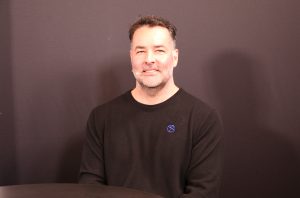Adaptly Raises $10.5M as Facebook Ecosystem Faces Rival in Pinterest
![]() Social networking sites have a huge impact on businesses. A lot of web traffic for brands is generated when people see interesting ads on social sites like Facebook or Pinterest.
Social networking sites have a huge impact on businesses. A lot of web traffic for brands is generated when people see interesting ads on social sites like Facebook or Pinterest.
Facebook is still leading the ad ecosystem as brands utilize the broad reach of the social site. Among all the social sites, Facebook has the largest user base, and brands want to leverage this edge for their own products and services.
Facebook’s ecosystem has become a success because of the companies like Adaptly, which manages their ad campaigns as well as help other marketers buy ads across social platforms, like Twitter and StumbleUpon. Adaptly raised $10.5 million in a series B round of funding led by Valhalla Partners with the participation of Time Warner Investments and Vivi Nevo as new investors.
Network carriers also see the value of Facebook for their companies. At the International CTIA 2012, AT&T CEO Ralph de la Vega and T-Mobile CEO Philipp Humm praised the social networking giant, while Sprint CEO Dan Hesse cited the importance of social networks in creating awareness for consumers, especially with cable and oil companies rating higher with consumers than mobile carriers.
“I think that social networking is going to be a major force in this industry for years to come,” says Vega. “I think it helps people communicate. That’s what we do.”
Verizon CEO Dan Mead did not comment on the impact of Facebook for their company, stating that he will just leave the commenting to experts.
Pinterest better for brands?
![]() However successful Facebook’s been at attracting brands, however, they face a growing competitor in Pinterest, especially for the online retail sector. A recent study released by Boticca reveals that Pinterest users are more likely to purchase something from their online shop than patrons using Facebook. Comparing shoppers, out of 50,000 visitors from each of the sites, web transactions were greater from Pinterest users at 10% while only 7% of Facebook users go through with web transactions.
However successful Facebook’s been at attracting brands, however, they face a growing competitor in Pinterest, especially for the online retail sector. A recent study released by Boticca reveals that Pinterest users are more likely to purchase something from their online shop than patrons using Facebook. Comparing shoppers, out of 50,000 visitors from each of the sites, web transactions were greater from Pinterest users at 10% while only 7% of Facebook users go through with web transactions.
The report also stated that 87% of the London-based boutique’s first-time visitors originated from Pinterest, compared with just 57% from Facebook. Though more Pinterest users purchase from their site, they spend less time on the site and are less likely to engage in a conversation compared to Facebook users.
The main difference between Facebook and Pinterest is that the latter is more visually stimulating while Facebook is still more social. So if brands want to interact with their consumers to get feedback on products and services, they should look to Facebook. But if they want to sell stuff, they should focus on marketing through Pinterest. Another difference between the two is that clicking brand photos on Pinterest redirects them to the site that actually sells the stuff, while Facebook doesn’t. So shoppers seeing photos on Facebook either give up trying to find the item on the net, or they just don’t bother looking for it at all.
Based on the report, 32% of the 3,741 online buyers surveyed made a purchase because they saw an image on a social image-sharing site like Pinterest; 26% were able to click through to the retailer from the image to make the purchase; 6% had to look for the product on another site; and 37% had seen items they wanted to buy on image-sharing sites. One in 10 did not make a purchase online because they couldn’t find them, and 27% did not purchase because they didn’t take the time to look.
Though some may find Pinterest better for their business, it still lacks a few details to make it the perfect advertising tool for any business.
In an interview with SiliconANGLE editor Kristen Nicole, Wayfair CEO and co-founder Niraj Shah mentioned that Pinterest lacks “API and ways for a retailer to better integrate for two-way collaboration/sharing with their customers,” but thinks that Pinterest is “amazing and fantastic”.
A message from John Furrier, co-founder of SiliconANGLE:
Your vote of support is important to us and it helps us keep the content FREE.
One click below supports our mission to provide free, deep, and relevant content.
Join our community on YouTube
Join the community that includes more than 15,000 #CubeAlumni experts, including Amazon.com CEO Andy Jassy, Dell Technologies founder and CEO Michael Dell, Intel CEO Pat Gelsinger, and many more luminaries and experts.
THANK YOU









